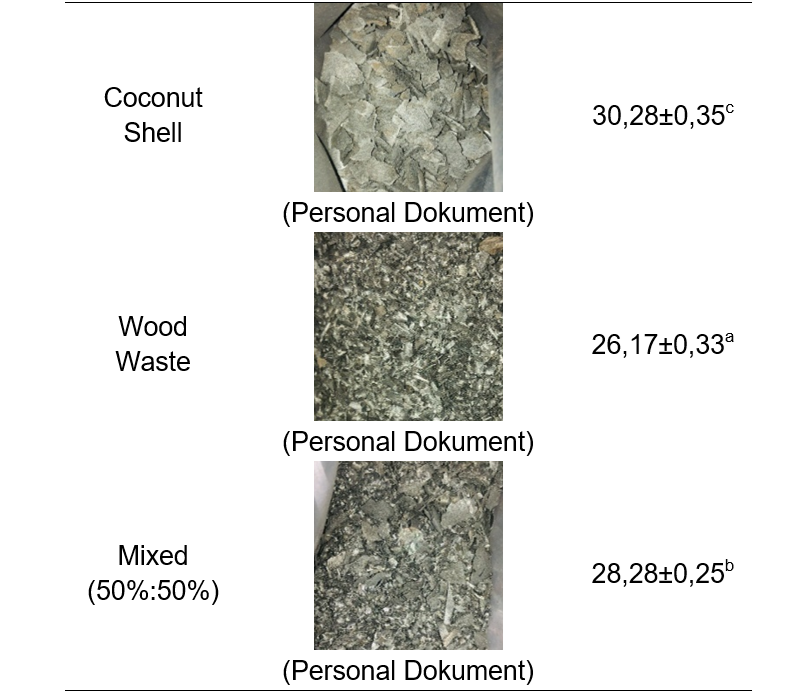Pyrolysis Effects of Coconut Shell and Wood Waste on Charcoal Characteristics as Biobriquette Raw Material
Main Article Content
Abstract
Coconut shell charcoal has been widely produced as a raw material for biobriquette production. This cause effect on an increase of coconut shell price as a raw material for charcoal production. Wood waste is one of the easier and cheaper biomass to be obtained than coconut shell. However, the quality of charcoal produced from wood waste need to be compared to be used as a substitute of coconut shell. This study aims to discover the effect of pyrolysis as a carbonisation process on coconut shell, wood waste, and a mixture of both biomass on the quality of charcoal produced including yield, proximate analysis, lignocellulose analysis, and calorific value. A completely randomized design was used in this study by taking into account two influencing factors, including the type of sample (biomass sample and charcoal sample) and the type of biomass (coconut shell, wood waste, and a mixture of both). Pyrolysis was carried out at 550℃ for 120 minutes. Pyrolysis of biomass and different types of biomass have giving effects on the characteristics of the biomass and charcoal produced. The results of the analysis showed that the type of coconut shell biomass and a mixture of the two biomasses produced charcoal that qualified on standards. The results of the analysis concluded that charcoal made from a mixture of coconut shell and wood waste could be a solution to substitute charcoal made from coconut shell only.
Downloads
Article Details
Section

This work is licensed under a Creative Commons Attribution-ShareAlike 4.0 International License.





